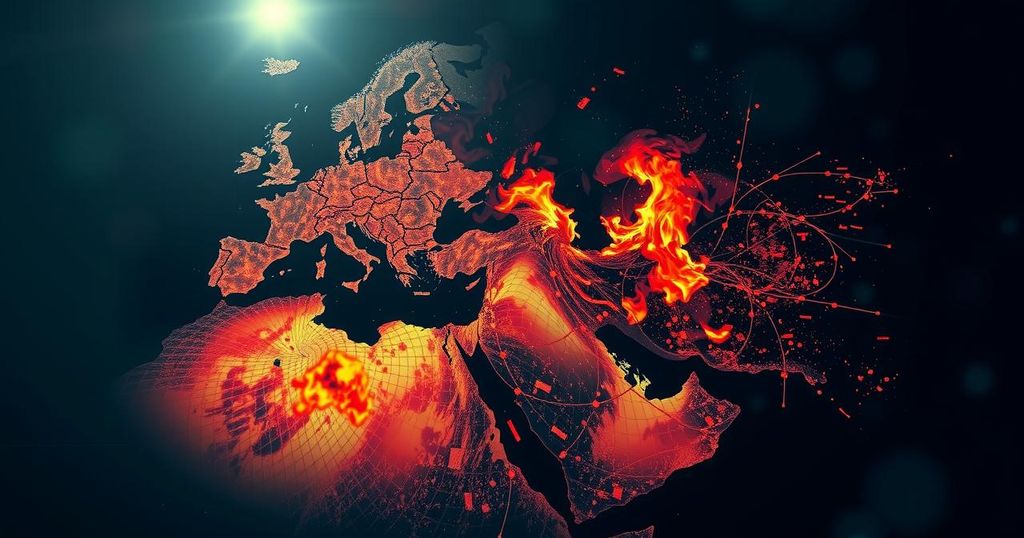Islamist Forces Seize Aleppo, Complicating U.S. Interests in Syria

Islamist forces in Syria have captured much of Aleppo, raising serious questions for U.S. policy and regional security. The seizure of territory, including strategic military sites, poses new risks, particularly regarding chemical weapons. This development marks a significant defeat for Assad and his allies, highlighting the shifting dynamics within the ongoing conflict as extremist groups gain in strength and influence.
In a significant development in the Syrian conflict, extremist Islamist forces have captured large portions of Aleppo, posing new challenges for U.S. policy and raising concerns over the security implications for Israel. Jason Brodsky, the policy director for United Against Nuclear Iran, highlighted the dangers associated with these groups, particularly with regards to sensitive military facilities. This takeover represents a considerable setback for the Assad regime and its allies, potentially shifting the balance of power in the region.
The capture of Aleppo has shocked the international community, prompting discussions among Israeli leaders regarding national security risks presented by these Islamist factions. Notably, the seizure of facilities associated with Assad’s chemical weapons program raises alarms about the potential for these weapons to fall into hostile hands. Throughout the ongoing conflict, the U.S. has maintained a military presence in Syria, primarily to combat the Islamic State, while also countering Iranian influence in the country.
Brodsky expressed concerns about the U.S.-designated terrorist group Hay’at Tahrir al-Sham (HTS), which has played a pivotal role in the recent successes of the anti-Assad forces. The weakening of Hezbollah and Iranian forces in the region has emboldened these groups, indicating a shifting dynamic that could further complicate U.S. interests in Syria. HTS is reportedly pursuing a strict Islamist agenda reminiscent of the Taliban, raising concerns about their long-term goals in the region.
Experts note that the situation remains critical, with HTS gaining influence in areas populated by Kurdish forces, further destabilizing Northern Syria. The Kurdish-led Syrian Democratic Forces, allied with the U.S., are situated in these territories and face challenges from the advancing Islamist forces. The Syrian military’s response has included a tactical redeployment to address the growing threat posed by these insurgents, demonstrating the chaotic and fluid nature of the ongoing conflict.
The Syrian Civil War has been a protracted conflict since 2011, with varying factions vying for power and control. President Assad’s regime, supported by Russia and Iran, has faced persistent opposition from both moderate and extremist groups. The emergence of groups like Hay’at Tahrir al-Sham, which evolved from Al-Qaeda affiliates, has shifted the dynamics on the ground, posing new threats not only to the Assad regime but also to regional and international security. U.S. interests in the region have been complicated by the necessity to combat the Islamic State while simultaneously countering Iranian expansionism, making the situation in Syria a multifaceted challenge for American foreign policy.
The recent territorial gains by Islamist forces in Aleppo significantly alter the landscape of the Syrian conflict, creating heightened concerns for both U.S. and Israeli security interests. The situation underscores the complexities of the civil war and the intricate web of alliances and hostilities that define it. The actions of HTS and other extremist groups present a formidable challenge that the U.S. and its allies must navigate carefully in order to safeguard their objectives and prevent further destabilization of the region.
Original Source: www.foxnews.com






